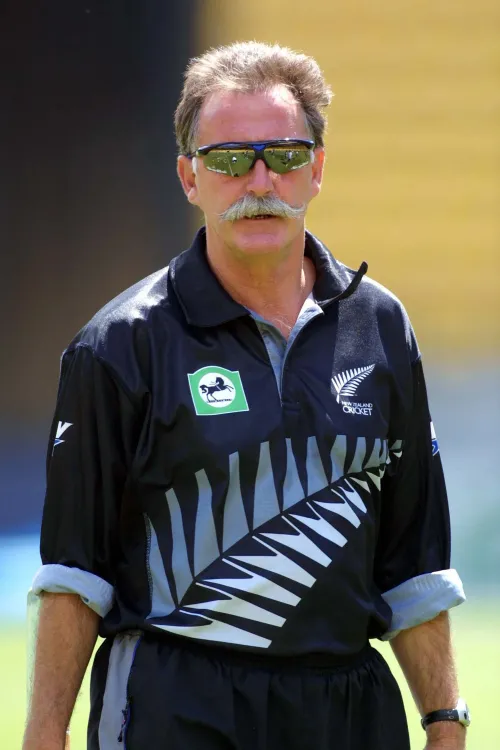What Legacy Did Former NZ Coach David Trist Leave Behind at 77?

Synopsis
Key Takeaways
- David Trist was a pivotal figure in New Zealand cricket.
- He coached the team to their first ICC Champions Trophy in 2000.
- Trist had a notable playing career as a pace bowler for Canterbury.
- His coaching legacy includes success in various countries.
- He was a beloved figure within the cricket community.
Christchurch, May 30 (NationPress) The renowned former coach of New Zealand, David Trist, who led the team to victory in the Champions Trophy in 2000 (previously known as the ICC Knockout), has passed away at the age of 77 in Christchurch, as announced by New Zealand Cricket.
Trist, who had a successful career as a pace bowler with Canterbury, participated in 24 first-class matches and six List A games from 1968 to 1982. He was the head coach of the New Zealand men's team for a two-year tenure from 1999 to 2001, during which he achieved the team's first and only global white ball title, the ICC Knockout Trophy in Nairobi on October 15, 2000. In the final, New Zealand triumphed over India by four wickets, with Chris Cairns contributing an impressive unbeaten century.
In a statement, New Zealand Cricket expressed its deep sorrow over Trist's passing: "NZC is profoundly saddened to confirm the death of former BLACKCAPS coach David Trist, who passed away in Christchurch yesterday at the age of 77. A former pace bowler for Canterbury and New Zealand, David coached the BLACKCAPS from 1999 to 2001, during which time they secured the ICC Champions Trophy in Nairobi. NZC extends its heartfelt condolences to David’s family and friends."
Throughout his first-class career, Trist took 57 wickets and represented New Zealand against Victoria at the Melbourne Cricket Ground in 1972. He succeeded Steve Rixon, an Australian coach known for his strict approach, who oversaw a coveted Test series victory in England in 1999.
After concluding his role with New Zealand, Trist took on the position of coaching director at Christchurch's Old Collegians Cricket Club and also worked in coaching capacities in India and England.
His coaching accolades include success with the Canterbury team from 1989 to 1993 and international coaching in South Africa, the Netherlands, and Hong Kong. He guided Eastern Province to a South African championship in 1989 and coached the national team of the Netherlands before returning to coach Canterbury and Auckland, ultimately leading to his appointment with the national team.
bc/









